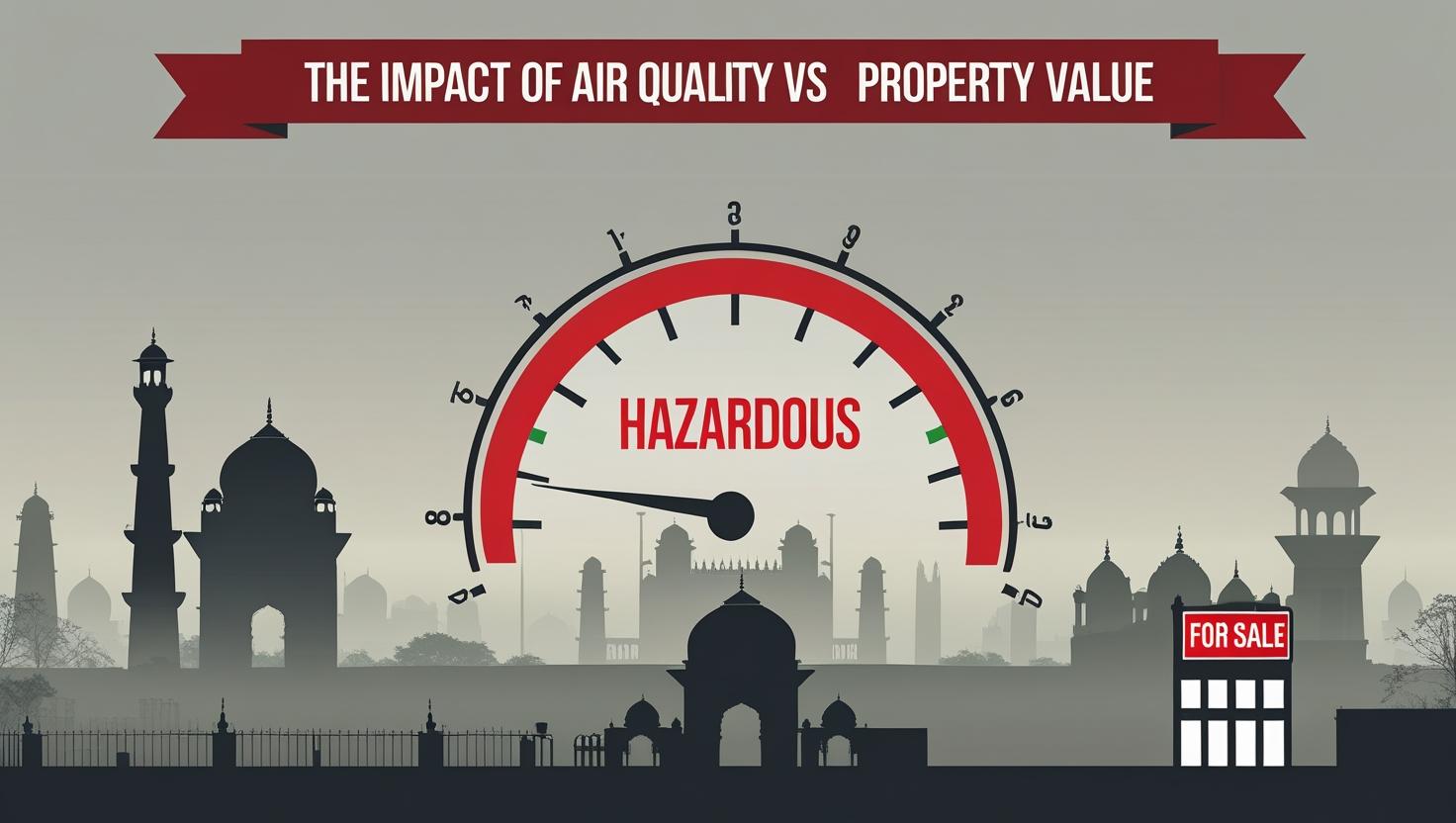Delhi, India’s bustling capital, is renowned for its rich history, vibrant culture, and economic significance. However, in recent years, the city has also gained notoriety for its deteriorating air quality. This environmental challenge has far-reaching implications, notably on the real estate sector. This article delves into how air pollution influences property values, buyer preferences, and the overall dynamics of Delhi’s real estate market.
Understanding Impact of Air Quality on Delhi
Delhi’s air pollution levels have escalated alarmingly. In January 2025, dense smog enveloped the city, reducing visibility and prompting warnings about potential disruptions to flights. The Air Quality Index (AQI) soared to “very poor” levels, with scores around 351, indicating severe pollution.
Source : Reuters
Such conditions are not isolated incidents but part of a recurring pattern, especially during the winter months.
The primary contributors to this pollution include vehicular emissions, industrial activities, construction dust, and seasonal factors like stubble burning in neighboring states. These pollutants lead to the formation of fine particulate matter (PM2.5), which poses significant health risks.
Source : WIRED
Health Implications and Public Response
The adverse health effects of Delhi’s air pollution are well-documented. A survey conducted in November 2024 revealed that 75% of families in the Delhi-National Capital Region (NCR) reported at least one member suffering from pollution-related ailments, such as persistent coughs and asthma.
Source : India Today
This widespread health crisis has heightened public awareness and concern, influencing lifestyle and residential choices.
Shifts in Residential Preferences
The deteriorating air quality has led many residents to reconsider their living arrangements. There is a growing trend of individuals seeking second homes in less polluted areas. Developers have reported a noticeable surge in inquiries for properties in regions with cleaner air and greener environments. For instance, areas like Himachal Pradesh and Goa have seen increased interest from Delhi residents looking for healthier living conditions.
Source : ET Now
Impact on Property Values
Air pollution has a direct correlation with property values. Properties located in heavily polluted areas often experience depreciation due to reduced demand. Conversely, areas with relatively better air quality within Delhi, such as those near green belts or parks, may see stable or even increased property values as buyers prioritize health considerations.
Commercial Real Estate and Business Considerations
The commercial real estate sector is not immune to the effects of air pollution. Businesses are increasingly factoring in environmental conditions when deciding on office locations. Poor air quality can lead to higher employee absenteeism and reduced productivity, prompting companies to seek offices in areas with better air quality or to invest in advanced air filtration systems.
Innovations in Real Estate: Clean Air as a Service
In response to the pollution crisis, some luxury hotels and commercial establishments in Delhi have started offering “clean air” as a premium service. For example, five-star hotels have installed advanced air filtration systems to provide guests with cleaner indoor air.
Source : Business Today
This trend reflects a broader shift in real estate, where air quality is becoming a key selling point.
Government Policies and Regulatory Measures
The government has implemented various measures to combat air pollution, such as the Graded Response Action Plan (GRAP), which includes restrictions on construction activities and vehicular movements during severe pollution episodes.
Source : Business Today
While these measures aim to improve air quality, they also impact real estate operations, influencing construction timelines and transportation logistics.
Future Outlook
The persistent air quality issues in Delhi are likely to continue influencing the real estate market. Buyers and investors are expected to increasingly prioritize environmental factors, leading to a potential shift in demand towards areas with better air quality. Developers may also need to incorporate sustainable practices and pollution mitigation measures to attract environmentally conscious consumers.
Conclusion
Delhi’s air quality crisis presents significant challenges to its real estate market. As awareness of environmental health risks grows, both residential and commercial property sectors must adapt to changing preferences and regulatory landscapes. Prioritizing sustainability and air quality can not only enhance public health but also ensure the long-term viability of real estate investments in the region.
Source : Reuters
Source : Dense smog shrouds Indian capital, threatening to disrupt flights
Source : WIRED
Source : Can Artificial Rain, Drones, or Satellites Clean Toxic Air?
Source : AP News
Source : Park regulars in New Delhi’s Lodhi Garden say toxic pollution levels won’t force them out

